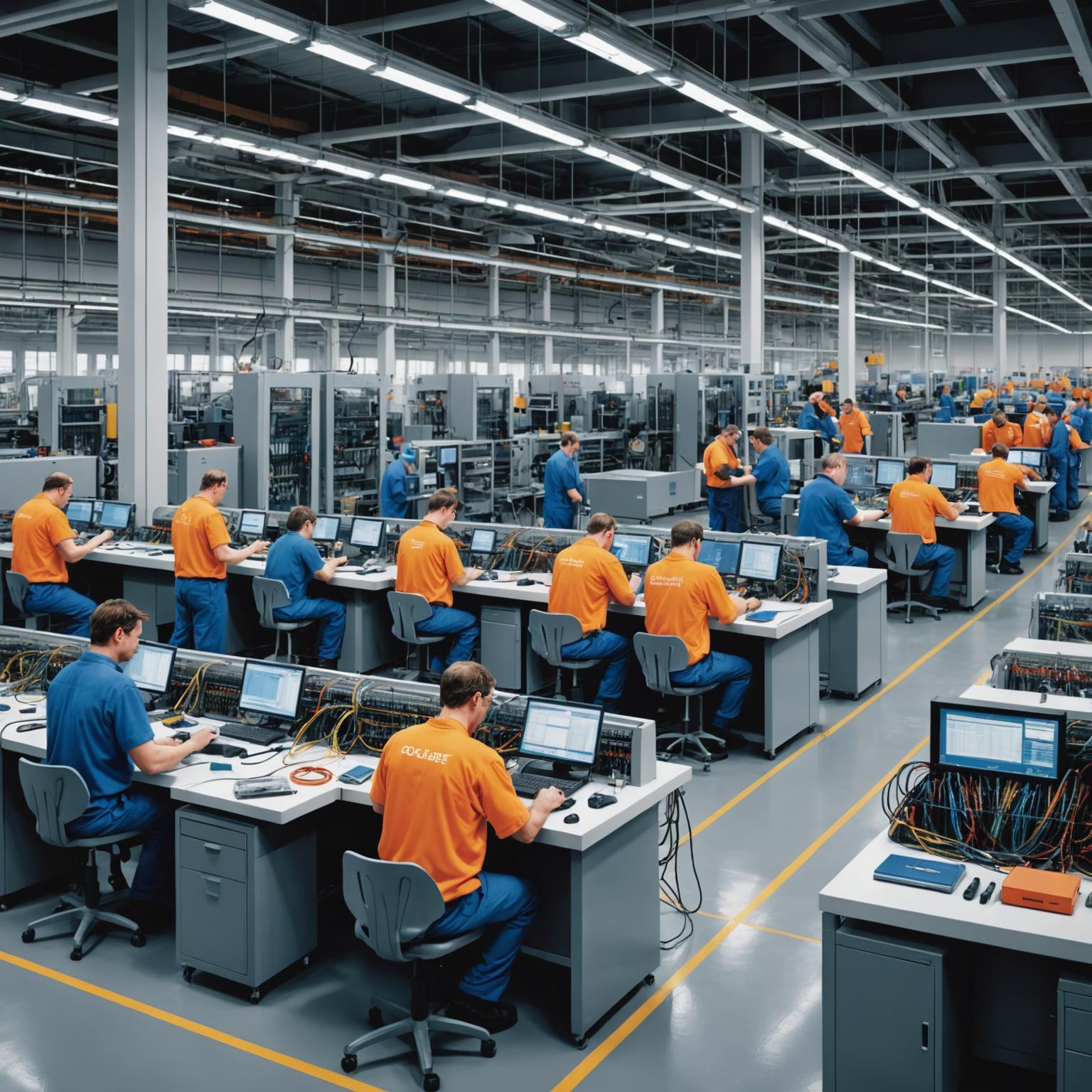The Backbone of Modern Connectivity
This is our independent website, you can check out our products.https://pjcases.com
In our hyper-connected digital age, the humble data cable is an unsung hero, silently powering our communications, entertainment, and productivity. These essential conduits link our smartphones, laptops, and other gadgets, enabling the seamless flow of information that defines modern life. At the heart of this global network is the modern data cable factory, a sophisticated facility where raw materials are transformed into the lifelines of our devices. The journey from a spool of copper to a high-performance cable that can charge a device in minutes or transfer gigabytes of data in seconds is a testament to precision engineering and stringent quality control that happens behind the scenes.

Inside the Walls of a Data Cable Factory
A glimpse inside a leading data cable factory reveals a complex, multi-stage process that combines automation with skilled human oversight. It begins with high-purity raw materials, primarily copper for the conductors and various polymers for insulation and the outer jacket. The process includes wire drawing, where copper rods are stretched into fine wires; stranding, where these wires are twisted together for flexibility; and insulation, where each wire is coated to prevent signal interference. Subsequent steps involve twisting pairs of wires to reduce crosstalk, applying shielding to protect against external electromagnetic noise, and finally, encasing everything in a durable outer jacket. This meticulous process ensures that every cable meets the exact specifications required for high-speed data transfer and reliable power delivery. For any business seeking a dependable data cable supplier, understanding this commitment to quality manufacturing is paramount.
Innovation in Cable Manufacturing
The world of data transfer is constantly evolving, and so are the technologies behind it. The industry’s leading cable technology suppliers are at the forefront of this innovation, pushing the boundaries of what is possible. We have moved from simple USB-A cables to the versatile and powerful USB-C and Thunderbolt standards, which support faster data speeds, higher power output, and even video transmission in a single connection. Material science has also advanced significantly, leading to the development of stronger, more flexible cables with braided nylon sheathing and reinforced connectors that withstand thousands of bends. These advancements are driven by a deep understanding of material science and electronics, allowing a manufacturer to produce cables that are not only faster but also more durable and versatile. These innovations are critical for supporting next-generation devices and applications, from ultra-high-definition –displays to high-speed networking.
Selecting a Reliable Data Cable Supplier
For businesses, retailers, and device manufacturers, choosing the right partner is crucial for success. When evaluating a potential data cable supplier, it is important to look beyond the price tag and consider factors like quality control, production capacity, and R&D capabilities. A reputable supplier will have rigorous testing protocols in place to verify everything from signal integrity to physical durability. A partnership with premier cable technology suppliers ensures access to the latest advancements and a product that reflects quality and reliability. Certifications like USB-IF (for USB) or MFi (for Apple) are strong indicators that a supplier adheres to strict industry standards, providing peace of mind for both the business and the end-user. This ensures that the final product is not only compliant but also safe and performs as expected.
Connecting the Future
From intricate manufacturing processes to relentless innovation, the journey of a data cable is far more complex than its simple appearance suggests. The next time you plug in your device for a quick charge or a fast data transfer, remember the advanced data cable factory and the network of skilled engineers and innovators who make that seamless connection possible. They are the architects of our digital infrastructure, constantly working to build faster, stronger, and more reliable links to power our future. As technology continues to advance, the role of these specialized factories will become even more critical in shaping how we connect and interact with the world.
